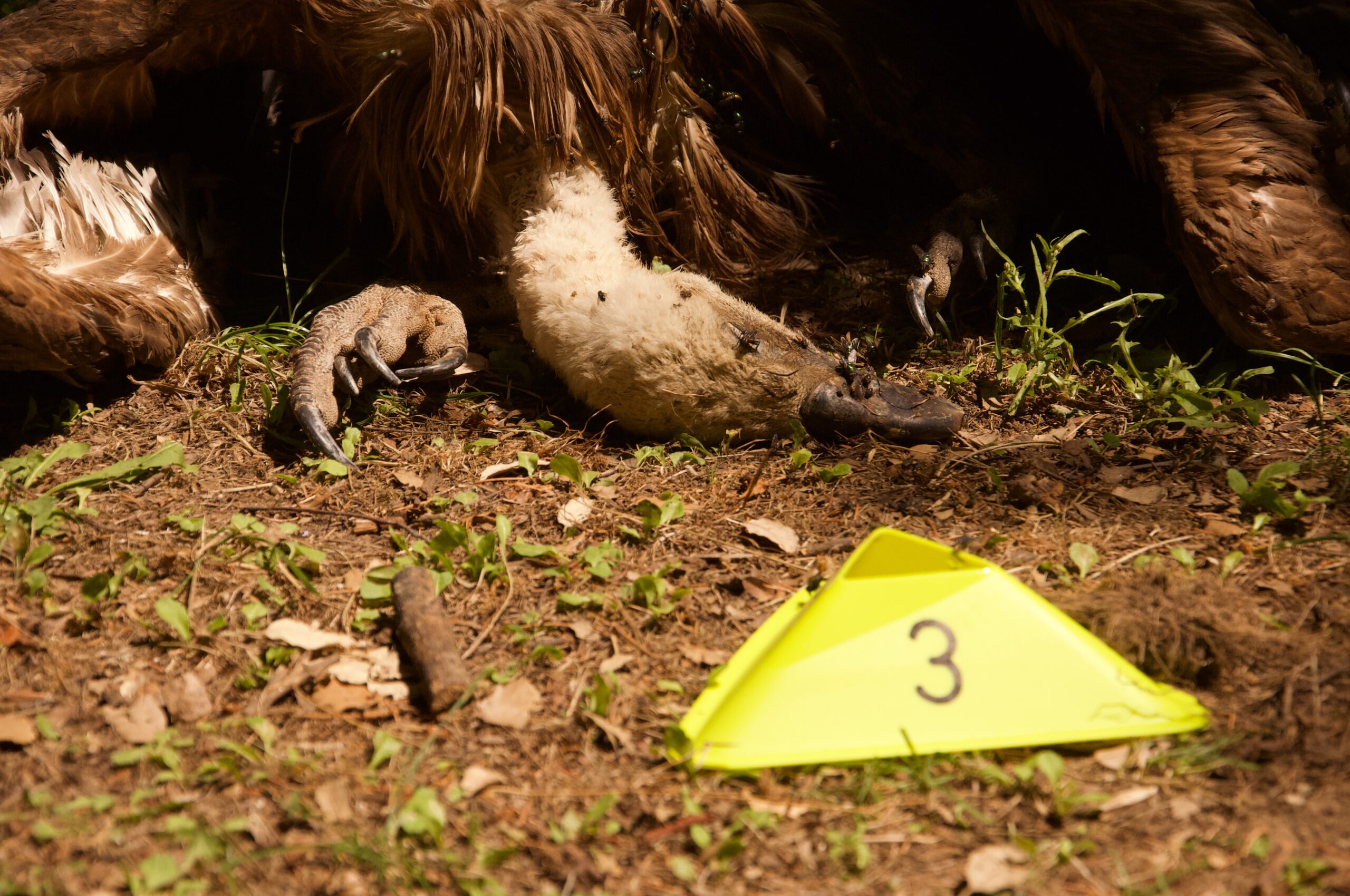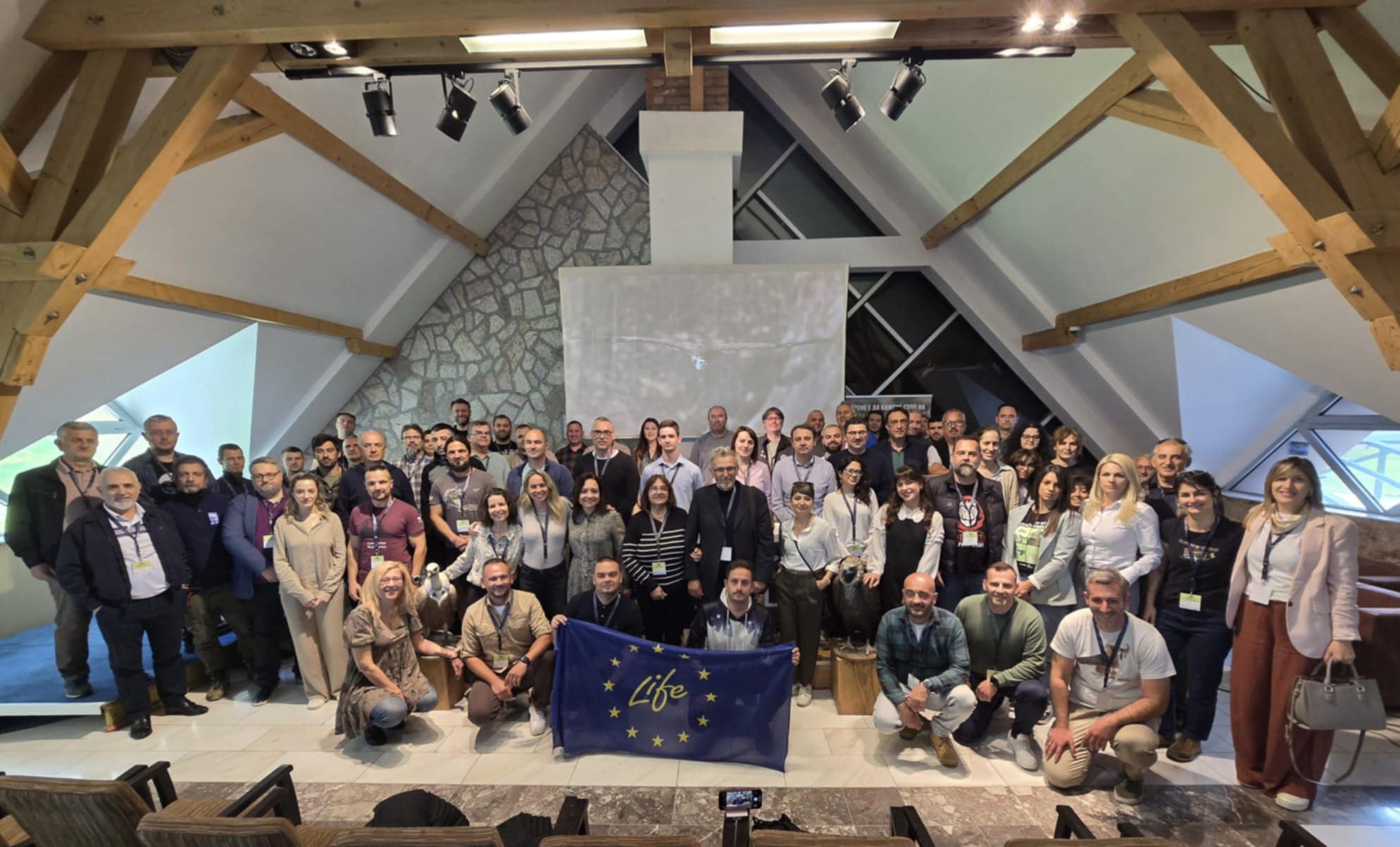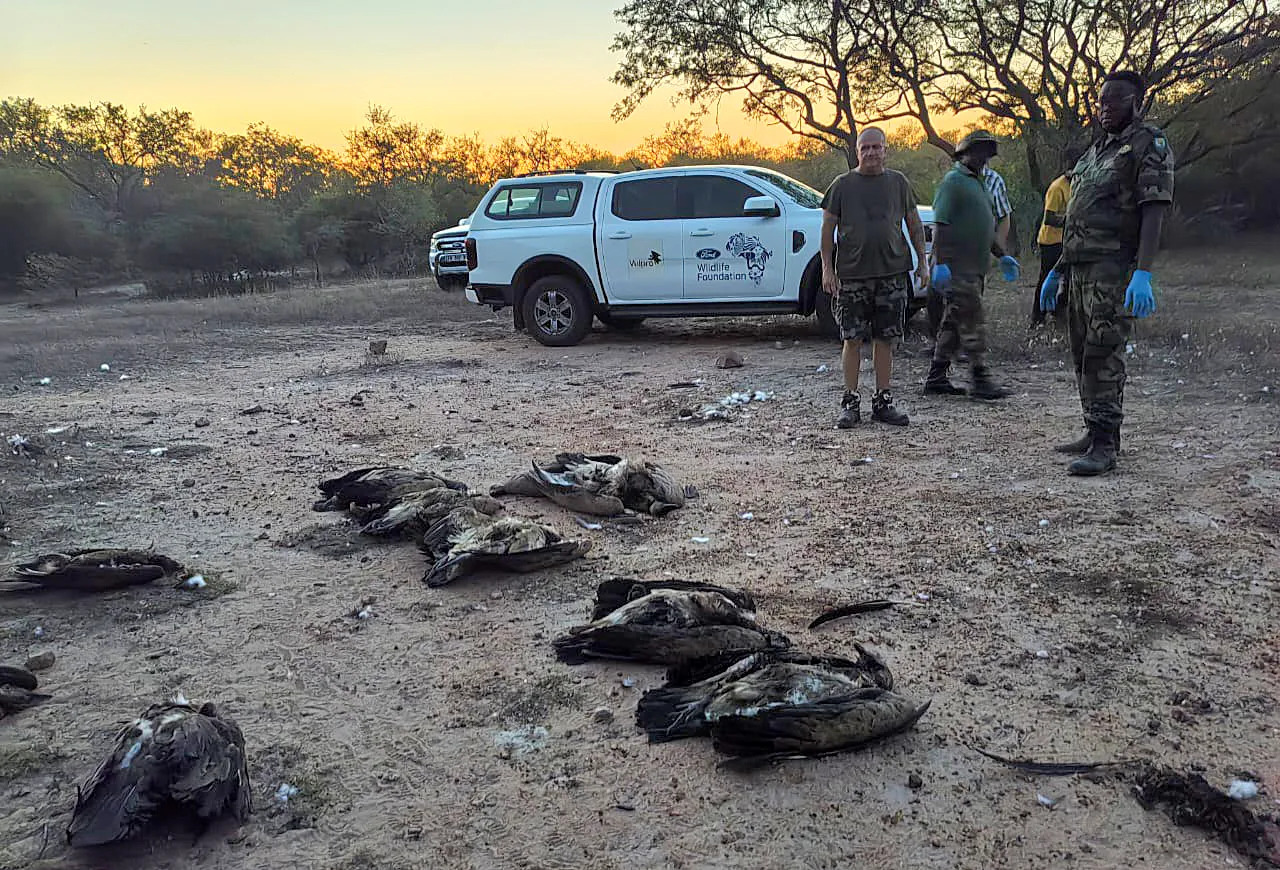
A national workshop in Albania took place on 24 January 2020 to help raise awareness among responsible national institutions on the scale, root causes and consequences of the illegal use of poison baits and wildlife crime in Albania. The Albanian Ornithological Society (AOS) organised the workshop together with the Ministry of Tourism and Environment and the Embassy of Spain in Albania within the framework of VCF’s Balkan Anti-Poisoning Project – Small Grants Programme and the Egyptian Vulture New LIFE project.
Albania and wildlife crime

The Minister of Tourism and Environment, Blendi Klosi, opened the meeting by enunciating the importance of the engagement of national institutions in tackling wildlife crime and poisoning. Moreover, Mr Klosi highlighted its collaborative approach and his willingness to approve the National Anti-Poisoning Road-Map in Albania. Following the meeting, the minister stated “We will soon approve the document on Wildlife Anti-poisoning Policies, a document that will orientate the government policies for the elimination of intentional poisoning. The national anti-poisoning meeting demonstrates that it’s time to move on that direction.”
Wildlife poisoning in Spain
The Ambassador of Spain in Albania, Mr Canelles, then spoke about the journey of Spain in tacking wildlife poisoning and why Albania should conserve its wildlife. Spain can be seen as a best practise example in Europe when it comes to tackling illegal wildlife poisoning. Thanks to decades of work and enforcement, this destructive practice drastically decreased in the country.
The role of research in protecting vultures
Dr Jose Antonio Donazar, a vulture expert from Spain, held a presentation on the importance of science and knowledge as key factors to reserve negative population trends in long-lived birds. The main issues he pointed out during the presentation were – methodologies of studying vultures population; vultures feeding strategy regarding the food sources; human footprint and supplementary feeding station; the main threats – poisoning and electrocution and who are the main contributors on vulture conservation actions.
International anti-poisoning projects

We here at the Vulture Conservation Foundation were present in this important meeting to share our experience and expertise on the issue. Our Programmes Manager, Jovan Andeski, highlighted the outcomes of the work that has been done so far regarding wildlife poisoning in the Balkan Peninsula with our Balkan Anti-Poisoning Project.
The Egyptian Vulture New Life project also held two presentations, which consisted of the perspective and results of their work on bird-crimes in the Balkans and data collection on threats towards birds and wildlife.
Finally, the Hellenic Ornithological Society supervised two sessions – dogs unit for combating wildlife poisoning and the Balkan Anti-Poison database.
Main takeaways from the workshop
The main points addressed were lack of capacities to investigate and to prevent wildlife from poisoning and crime, lack of official database with poisoned cases and the importance of the engagement of national institutions in the efforts of tackling wildlife poisoning and crime. The results and outcomes of the meeting pointed out over the discussion and interactions among important national stakeholders helped on identifying needs, weaknesses and strengths regarding the efforts in tackling wildlife poisoning and crime. As a result, conservation actions and action plans need to be carefully planned and implemented to accomplish targeted steps toward a long-term solution.
The Balkan Anti-Poisoning Project Small Grants Programme
The Balkan Anti-Poisoning Project Small Grants Programme is the first time we at the Vulture Conservation Foundation have run a grant programme, and with this we aim to reinforce national capacities within relevant governmental authorities and conservation NGOs from six countries (Albania, Bosnia and Herzegovina, Croatia, Greece, North Macedonia and Serbia) of the Balkan Peninsula. This work will support those organisations to improve the skills and capabilities in the detection and mitigation of poisoning incidents through the implementation of previously developed National Roadmaps and Strategies. More specifically, through these small grants we endeavor to secure the implementation of priority anti-poisoning actions listed in the National Anti-Poisoning Road-maps/Strategies, strengthen the capacities of relevant national governmental institutions in combating the illegal use of poison baits, improve the enforcement of relevant legislation and attract other funding opportunities for implementation of large-scale anti-poisoning projects in the region. Through the support of the MAVA Foundation, we managed to dedicate a budget of €60.000 for these small grants.
Balkan Anti-Poisoning Project

The Balkan Anti-Poisoning Project is a cross-border initiative bringing together wildlife conservation organisations, governmental agencies and other stakeholder such as; hunting associations, farmers and scientists, in six Balkan countries to tackle illegal wildlife poisoning.
Funded by the Mava Foundation we aim to secure real and continued engagement of the relevant national governmental authorities in the Balkan region against illegal wildlife poisoning and increase their capacity to counteract it and working together to take positive steps to protect vultures.
The Balkan Anti-Poisoning Project is a partnership between us here at the Vulture Conservation Foundation and the Albanian Ornithological Society-AOS, Protection and Preservation of Natural Environment in Albania-PPNEA, Ornithological Society “Naše ptice”,Association BIOM, Hellenic Ornithological Society-HOS, Macedonian Ecological Society-MES and Društvo za zaštitu i proučavanje ptica Srbije.
The Balkan Anti-Poisoning Project also contributes directly into the implementation of the Vulture Multi-Species Action Plan by carrying out anti-poisoning actions in Albania, Bosnia and Herzegovina, Croatia, Greece, North Macedonia and Serbia, and is building on our work for the last decade in the Balkans thorugh the Balkan Vulture Action Plan.




